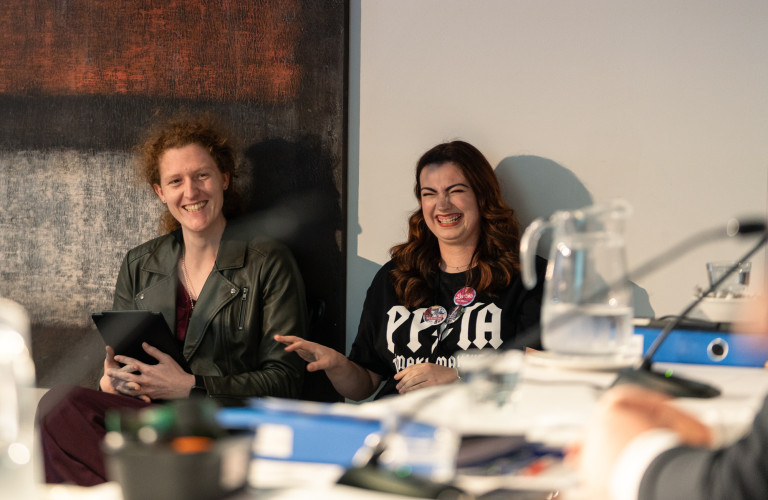Celebrating our differences
A new network and advisory committee will be set up to recognise and support the strengths and abilities of neurodiverse kaiako.

Every time a student asks English teacher Louise Ryan how to spell a word, panic sets in.
“Do I know how to spell it? Am I about to embarrass myself?"
For most English teachers, such a question would not faze them at all but for Louise such moments are all too common as she has dyslexia. “Ironic? I know, a dyslexic English teacher. And, let me tell you, it's not just a twist of fate; it's a unique opportunity.”
Deeper understanding of diverse minds
She can empathise with students who face similar challenges. “I understand the frustration of seeing words dance on the page, of trying to decode a seemingly insurmountable sentence. I've been there. And that empathy is a powerful tool for connecting with my students, for letting them know they're not alone in this struggle. I am incredibly open with my students at the start of the year about my dyslexia and how that means I view the world differently and if I make a mistake that it’s okay and just to ask for clarification if they are confused. This fosters a classroom environment where making mistakes are okay and it’s okay to ask for help. This year, I have multiple students with dyslexia throughout my classes, and my journey allows me to support them in so many ways as well as being able to recognise when a student might be struggling as well.
“Dyslexia is not a limitation; it's a different way of thinking. I've had to find new approaches, unique strategies, and inventive techniques to help my students succeed. It's led to more engaging lessons, interactive activities, and a deeper understanding of how diverse minds work.”
Critical aspect of our education system
Louise told PPTA Te Wehengarua annual conference that her journey highlights the importance of inclusion and support for neurodivergent kaiako. “Neurodiversity isn't something that should be brushed aside or ignored; it's a critical aspect of our education system that we must embrace. We are constantly learning how to better support our neurodiverse students, so why should we not also make sure we are here for our neurodiverse teachers to ensure they feel supported in their classrooms and kura as well?
“Inclusion of neurodivergent teachers not only benefits us individually but enriches the entire educational experience. It fosters a culture of understanding, where differences are celebrated rather than stigmatised. It encourages innovation in teaching methods and curriculum design. It sends a powerful message to our students: that diversity is a strength, not a weakness.
Moreover, supporting neurodivergent educators helps create a safe and inclusive environment where we can openly discuss our challenges and find solutions together. It's a reminder that the path to progress is paved with acceptance, not exclusion.
“It’s essential to recognise the importance of inclusion and support for neurodiverse educators in our ever-developing educational landscape.”
Seek to understand or dismiss?
Thalia Rutherfurd, a Tāmaki Makaurau Auckland delegate, who introduced the paper to annual conference, said the paper spoke to those who do not think like everyone else. “Why should we all think the same? What would the world be like if we all thought the exact same things? I don’t know about you, but I’d find it dull and boring. It also wouldn’t reflect our students, who think in gloriously broad ways, if they are allowed.
Celebrate different thinkers
“When we have a colleague who suggests a different way of doing things, a way that’s not in the guidelines for the standard, a way that is not in the convenient textbook that teaches the topic, do we seek to understand it, or do we dismiss it, assuming our methods, which have of course worked forever, will continue to do the job?
Why not, as a union, make the decision to celebrate those different thinkers and invite them to speak on terms that respect who they are and, more importantly, how they are?”
Annual Conference decided to establish a neurodiverse network for neurodivergent members, with associated branch representative positions. An advisory committee will also be set up to report on and recommend systems that best utilise, recognise and support the unique abilities of neurodiverse kaiako, and that address challenges faced by neurodiverse kaiako in kura across the country.
Last modified on Monday, 4 December 2023 14:31
